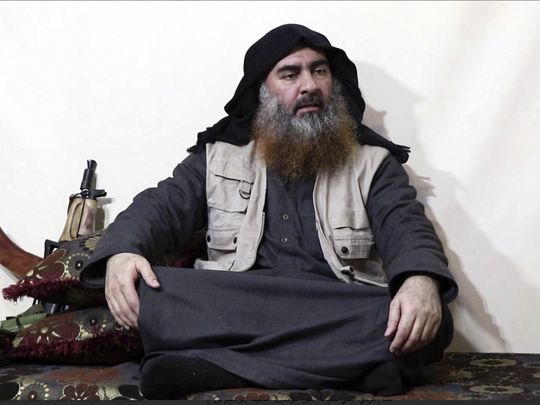
The death of Daesh leader Abu Bakr Al Baghdadi is certainly a major victory against the terrorist group.
However, no one expects his death to spell the end of the organisation that, at its peak, controlled territory the size of Britain and instigated terrorist attacks across Europe. But Daesh will have to contend with choosing and installing new leadership at a time when it is still struggling to reassert a significant presence on the ground in Iraq and Syria and to revive the external networks on which it relied to carry out major terrorist attacks overseas — as United States and regional intelligence officials said. Thousands of its fighters are imprisoned in Iraq and Syria, and tens of thousands of its supporters are detained in camps.
Many of the Sunnis living in the areas once ruled by Daesh have become disillusioned with the group’s harsh treatment of citizens and the destruction inflicted on their communities by the war to drive the group out. Most observers and experts on Daesh believe that the group needs a long time to be able to re-establish itself in a significant way as it did in the heydays of 2015 when its territory stretched across large swathes of Iraq and Syria.
However, Baghdadi’s death also creates an opportunity for the group to reinvent itself and move beyond the crushing blow of the so-called caliphate’s defeat. The defeat of Daesh in Iraq and Syria should be celebrated, but the world must not lose focus in the fight against its ideology. It is essential to realise that the group still remains a threat to the world.
The defeat of Daesh by a US-led coalition has stamped out the terrorist group’s grip on Syria and Iraq, but, as a result, the group began exporting terrorism around the globe. While its base has been dealt a deadly blow, fringe groups and lone wolf’s who believe in the group’s ideology, have carried out deadly attacks in Europe, the US, Sri Lanka and as far as the Philippines. There is also the issue of sleeper cells in the region that people should not take lightly. The truth of the matter is that public grievances such as unemployment, disillusionment with the state, still persist in the region. These factors have sparked massive protests in Iraq and Lebanon recently and are certainly felt in most of the region as well.
These systemic problems led to the establishment of Daesh in the first place. If these problems are not tackled then it will only provide fertile ground for such extremist ideology to persist and grow.







